Somaliland, One of The Safest Countries in Africa
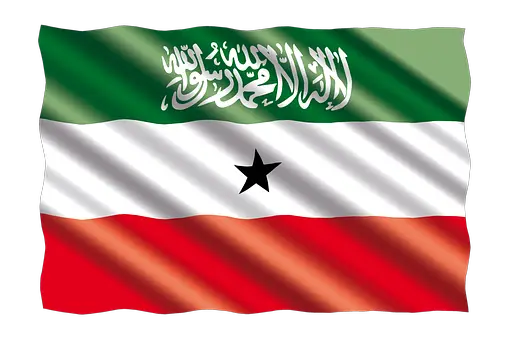
Somaliland is a self-declared independent state located in the Horn of Africa. It declared independence from the Somali Republic in 1991 after a civil war that lasted from 1988 to 1991.
Although it is not recognized as a sovereign state by the international community, Somaliland has its own government, constitution, currency, and flag.
Despite its lack of international recognition, Somaliland is widely considered to be one of the safest and most stable countries in Africa.
It has managed to maintain relative peace and stability while its neighbor, Somalia, has been plagued by conflict and violence for decades.
One of the reasons for Somaliland's stability is its unique political system. The country combines traditional clan-based structures with a modern democratic system.
The six regions that make up Somaliland each elect their own council, which then elects representatives to the Somaliland Parliament. The Parliament, in turn, elects the President.
Somaliland's economy is largely based on livestock, which makes up about 60% of its GDP. The country is also home to the port city of Berbera, which is strategically located on the Gulf of Aden and is a vital shipping hub for the region.
In recent years, Somaliland has been working to diversify its economy and has been exploring opportunities in the energy and mining sectors.
Somaliland's culture is a mix of various influences, including Arabic, Somali, and British. Islam is the dominant religion, and the country is known for its beautiful mosques and Islamic architecture.
The people of Somaliland are also known for their hospitality and generosity towards visitors. The traditional cuisine consists of rice, goat meat, and camel milk, flavored with a blend of spices.
Despite its stability and progress, Somaliland continues to face challenges. The lack of international recognition limits its ability to access aid and investment, and it faces ongoing disputes with neighboring Somalia over territory and resources.
However, Somaliland remains a unique and fascinating example of a self-declared independent state that has managed to maintain peace and stability in a volatile region.
History

Somaliland's history dates back to ancient times, when it was part of the Somali peninsula and was inhabited by various clans and tribes. In the 19th century, Somaliland became a British protectorate, while the southern part of the peninsula became an Italian colony.
Somaliland gained independence from Britain in 1960 and joined with the former Italian Somaliland to form the Somali Republic.
However, the union was plagued by tension between the two parts of the country, and in 1988, a civil war broke out between the government and various rebel groups.
The civil war lasted for three years and resulted in the collapse of the Somali government. In 1991, Somaliland declared independence from the Somali Republic, and has been operating as a de facto state ever since.
However, it has not been recognized as a sovereign state by the international community, although it has been recognized by a few countries, including Ethiopia and Djibouti.
Since declaring independence, Somaliland has been working to establish its own government, economy, and infrastructure.
It has held several democratic elections, including presidential and parliamentary elections, and has developed its own constitution and legal system.
Despite its lack of international recognition, Somaliland has maintained relative peace and stability, and has become known for its unique political system that combines traditional clan-based structures with a modern democratic system.
Overall, Somaliland's history is one of resilience and perseverance in the face of conflict and instability.
Despite the challenges it has faced, the country has managed to maintain a sense of national identity and has been working towards establishing itself as a stable and prosperous nation.
Culture
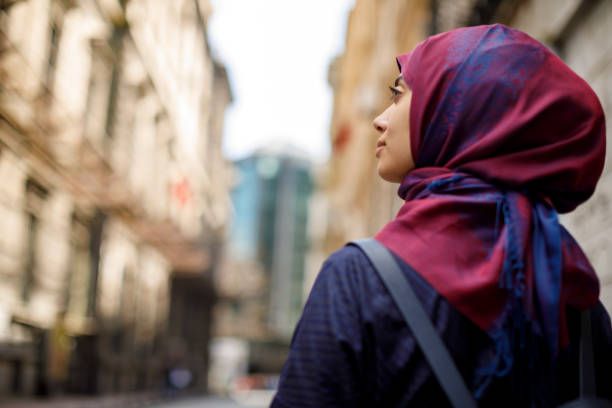
Somaliland has a rich and diverse culture that reflects its history and unique location at the crossroads of Africa and the Middle East.
Islam is the dominant religion, and it plays a significant role in the country's culture, traditions, and daily life.
One of the most prominent aspects of Somaliland's culture is its traditional music and dance. The country has a rich musical heritage that includes various styles, such as the Hees (poetry) and the Dhaanto (folk dance).
Traditional music is often played during weddings, religious ceremonies, and other cultural events, and is an important part of Somaliland's cultural identity.
Somaliland is also known for its traditional dress, which is a mix of Islamic and African influences. Women often wear colorful dresses and headscarves, while men wear long shirts and pants. The traditional dress is also worn during special occasions and cultural events.
Food is another important aspect of Somaliland's culture. The country's cuisine is a blend of Somali, Arabic, and Indian influences, and is often characterized by its use of spices and herbs.
Staple foods include rice, goat meat, and camel milk, and popular dishes include sambusa (a type of pastry filled with meat or vegetables) and lahoh (a type of pancake).
Somaliland is also known for its coffee, which is often served during social gatherings and ceremonies.
In addition to its traditional culture, Somaliland has a growing contemporary art scene, with many young artists exploring new forms of expression and pushing the boundaries of traditional art forms.
The country also has a thriving literary scene, with many writers and poets producing works that reflect the unique challenges and experiences of Somaliland.
Overall, Somaliland's culture is a mix of traditional and modern influences, reflecting the country's rich history and unique location.
Despite the challenges it has faced, Somaliland's cultural identity remains strong, and is a source of pride and unity for its people.
Economy
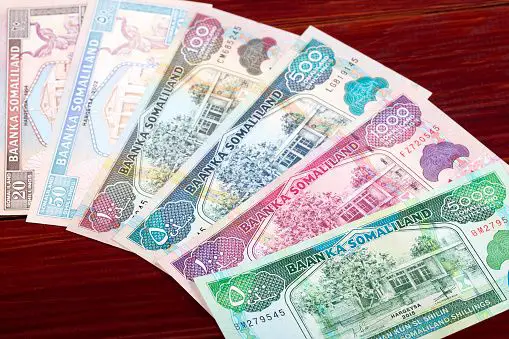
Somaliland's economy is largely based on livestock, with the country being one of the largest exporters of livestock in the region.
Livestock accounts for approximately 60% of the country's GDP, and provides a source of income for many rural communities.
In addition to livestock, Somaliland also has significant natural resources, including oil, gas, and minerals.
Despite its abundant natural resources, Somaliland faces significant economic challenges, including high unemployment, poverty, and a lack of foreign investment.
The country's infrastructure is also underdeveloped, with many roads, airports, and ports in need of modernization and expansion.
To address these challenges, Somaliland has been working to develop its economy and attract foreign investment.
The government has implemented economic reforms aimed at improving the business environment and encouraging investment, and has launched a number of infrastructure projects to improve the country's transportation and energy sectors.
Somaliland's strategic location, at the crossroads of Africa and the Middle East, also presents opportunities for trade and commerce.
The country's main port, Berbera, is a key hub for trade in the region, and is currently being developed in partnership with the United Arab Emirates.
The development of Berbera port is expected to boost the country's economy and increase its trade links with other countries in the region.
In addition to its traditional industries, Somaliland is also emerging as a hub for technology and innovation. The country has a growing tech sector, with many young entrepreneurs and startups developing innovative solutions to address local challenges.
The government has also launched initiatives aimed at promoting the development of the tech industry and attracting foreign investment in this sector.
Overall, Somaliland's economy is still in the early stages of development, but the country has significant potential for growth and diversification.
With the right policies and investments, Somaliland can build a more vibrant and resilient economy that benefits all its people.
Politics

Somaliland has a unique political system that combines traditional clan-based structures with a modern democratic system.
The country's political system is based on a multi-party democracy, with a president, parliament, and judiciary.
However, the traditional clan-based system, known as the guurti, also plays a significant role in the country's political life.
The guurti is a council of elders that is responsible for settling disputes and making important decisions related to the country's governance.
The council is composed of representatives from various clans and sub-clans, and plays a role in the selection of the president and the appointment of judges.
Despite the unique combination of traditional and modern political structures, Somaliland has been able to establish a relatively stable and democratic political system.
The country has held several successful democratic elections, including presidential and parliamentary elections, that have been recognized as free and fair by international observers.
However, Somaliland's political system still faces significant challenges, including corruption, tribalism, and a lack of inclusivity.
The country's political parties are often dominated by particular clans or sub-clans, which can create tensions and rivalries within the political system.
The lack of recognition by the international community is also a major challenge for Somaliland's political system.
The country's sovereignty is not recognized by the United Nations or any other country, which can limit its ability to participate in international institutions and access foreign aid and investment.
Despite these challenges, Somaliland's political system has shown resilience and adaptability, and has been able to maintain relative peace and stability in a region that has been plagued by conflict and instability.
With continued efforts to address the country's political challenges and build a more inclusive and transparent political system, Somaliland can continue on its path towards democracy and stability.
Tourist Attractions
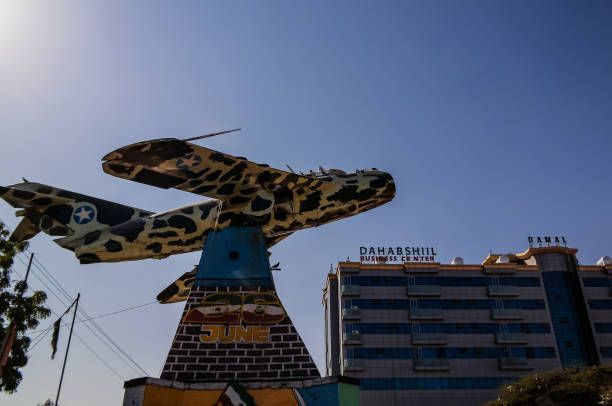
Somaliland is a hidden gem in East Africa that has many tourist attractions that are worth exploring. Here are some of the most popular tourist attractions in Somaliland:
Laas Geel: This ancient cave complex located near the city of Hargeisa is home to some of the most well-preserved rock art in Africa. The paintings, estimated to be around 5,000 years old, depict scenes of daily life and wildlife in vibrant colors.
Berbera Beach: Berbera is the largest port city in Somaliland and is home to a stunning coastline with crystal-clear waters and white sandy beaches. The beach is perfect for swimming, snorkeling, and sunbathing.
Sheikh Isaaq's Tomb: Located in the city of Maydh, this is the tomb of Sheikh Isaaq, a prominent Sufi leader and founder of the Isaaq clan. The tomb is an important pilgrimage site for many Somalis and is believed to have healing powers.
Daallo Mountains: Located in the eastern part of Somaliland, the Daallo Mountains are a scenic mountain range with stunning views of the surrounding countryside. The mountains are also home to several wildlife species, including baboons and hyenas.
Hargeisa Cultural Center: This newly built cultural center in Hargeisa showcases Somaliland's rich cultural heritage through art, music, and dance performances, as well as exhibits of traditional clothing and artifacts.
Sheikh Madar Mausoleum: This ancient mausoleum located in the city of Zeila is believed to be the burial place of Sheikh Madar, a prominent Muslim leader who played a key role in spreading Islam in the region. The mausoleum is a popular pilgrimage site for many Muslims in the region.
Naasa Hablood: Located in the city of Hargeisa, this landmark is also known as the "Two Camel Hump" rock formation. It is a natural rock structure that has become an iconic symbol of Somaliland.
In addition to these attractions, Somaliland is also home to several national parks and reserves, including the Daallo Forest Reserve, the Golis Mountain Range, and the Ainabo Wildlife Reserve, which are all worth visiting for nature lovers.
Overall, Somaliland has a rich cultural heritage and natural beauty that is waiting to be explored. While the country is still developing its tourism infrastructure, it offers a unique and authentic travel experience for those who are willing to venture off the beaten path.
Safety

Somaliland is widely considered to be one of the safest countries in Africa. Despite its location in a region that has been plagued by conflict and instability, Somaliland has been able to establish a relatively stable and peaceful society.
The country has its own police force and security apparatus that work to maintain law and order. The police force is well-trained and equipped and has been effective in combating crime and terrorism.
In addition, the people of Somaliland have a strong sense of community and are known for their hospitality towards visitors.
The government of Somaliland also places a high priority on ensuring the safety of tourists. The country has established a tourist police force that is responsible for providing security and assistance to visitors.
The tourist police can be identified by their distinctive uniforms and are available to help tourists with any issues they may encounter.
However, like any destination, there are still risks and precautions that travelers should take while visiting Somaliland.
It is recommended that visitors check with their embassy or consulate before traveling to Somaliland to obtain the latest safety information.
Visitors should also be aware of the risk of petty crime, such as theft and pickpocketing, especially in crowded areas.
It is recommended that visitors take precautions such as keeping valuables secure and avoiding carrying large amounts of cash.
While terrorism is not a significant threat in Somaliland, visitors should be aware of the risk of kidnapping and should take precautions such as avoiding travel to areas where there is a high risk of kidnapping and traveling with a reputable tour operator.
In summary, Somaliland is generally considered to be a safe destination for visitors. With common-sense precautions and awareness of potential risks, visitors can enjoy the country's rich cultural heritage and natural beauty without any major safety concerns.
Best time to visit Somaliland
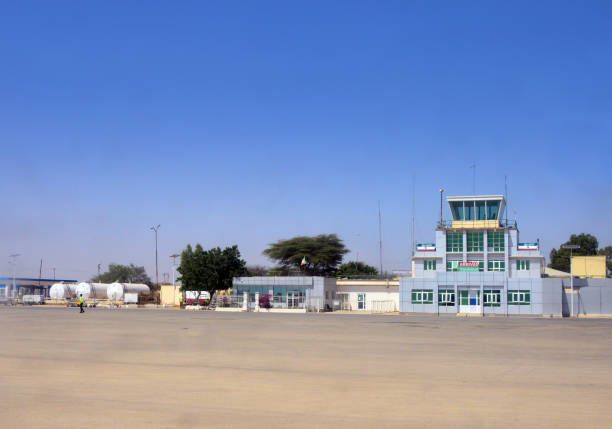
The best time to visit Somaliland is during the dry season, which runs from November to May. During this time, the weather is generally pleasant, with warm temperatures and low humidity.
The landscape is also at its most beautiful during the dry season, with greenery and blooming flowers after the seasonal rains.
The months of December to February are particularly popular among visitors, as the weather is cooler and more comfortable.
However, it is also the peak tourist season, so travelers should be prepared for higher prices and larger crowds.
The summer months, from June to October, are the wet season in Somaliland. During this time, the country experiences heavy rainfall and high humidity, which can make travel difficult and uncomfortable.
Roads can become impassable and some attractions may be closed due to flooding. However, the wet season can also be a good time to visit for those who enjoy bird-watching, as the rain brings out a variety of bird species.
Overall, the best time to visit Somaliland is during the dry season, from November to May. Travelers should keep in mind that the weather can be unpredictable, and should be prepared for fluctuations in temperature and occasional rain showers, even during the dry season.
